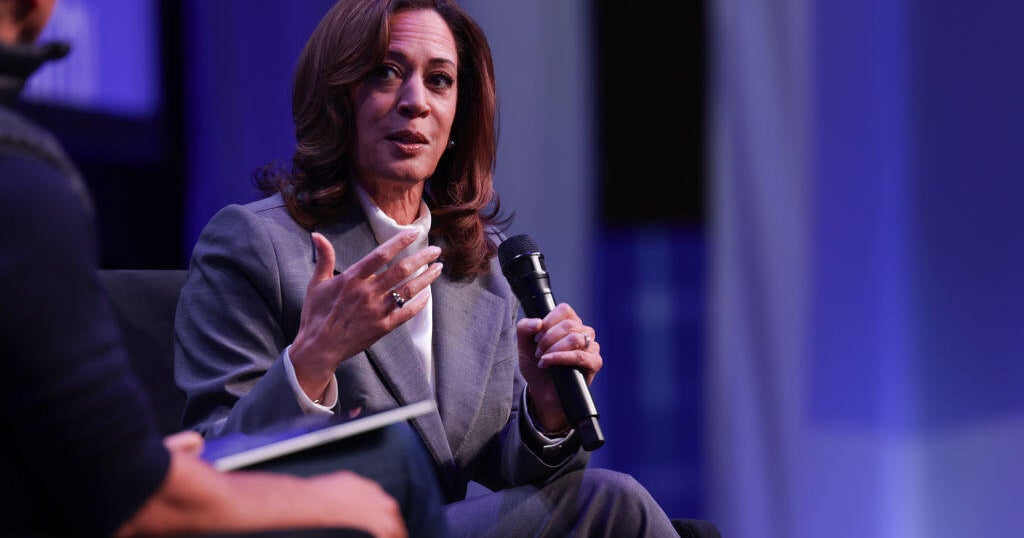In a move that has raised eyebrows in political circles, President Donald Trump announced on Friday night that he was rescinding the security clearances of several prominent Democrats. This decision affects former Vice President Kamala Harris, former Secretary of State Hillary Clinton, and several members of the Biden administration among others. This action follows his announcement last month where he stated that he was revoking former President Joe Biden’s security clearance.
In a memo released on Friday, President Trump stated that he was extending this action to the entire Biden family, thereby rescinding their security clearances as well. This decision effectively means that these individuals will no longer have access to classified information based on their previous tenure in Congress. The memo explicitly states that this applies to “receipt of classified briefings, such as the President’s Daily Brief, and access to classified information held by any member of the Intelligence Community by virtue of the named individuals’ previous tenure in the Congress.”
Among those who have lost their security clearances are former Secretary of State Antony Blinken, former Rep. Adam Kinzinger, retired Lt. Col. Alexander Vindman, New York Attorney General Letitia James, Manhattan Attorney General Alvin Bragg, former White House National Security Adviser Jake Sullivan, former Rep. Elizabeth Cheney, former White House Russia expert Fiona Hill, former Deputy Attorney General Lisa Monaco, former U.S. Ambassador to the Czech Republic Norman Eisen, and attorney Mark Zaid.
Mark Zaid is particularly noteworthy as he served as a lawyer for the whistleblower who reported concerns about President Trump’s dealings with Ukraine during his first White House term. Several of the named individuals, including James and Bragg, had already had their security clearances revoked earlier this month by Director of National Intelligence Tulsi Gabbard. This was part of a purge of dozens of clearances for current and former officials.
The revocation of security clearances has been a contentious issue since President Trump took office in January. He has since revoked the clearances of multiple former officials, accusing them of “weaponizing” either the intelligence community or the law against him. These accusations have raised concerns about the politicization of intelligence and the potential consequences for national security.
Among those implicated in these accusations are Cheney and Kinzinger, who played instrumental roles in leading the House select committee investigation into the Jan. 6 Capitol insurrection. Bragg was pivotal in bringing forward the New York “hush money” criminal case which resulted in a felony conviction for President Trump on 34 state counts of falsification of business records. James filed a lawsuit against President Trump and the Trump organization, accusing them of widespread fraud. The extensive trial resulted in a judge’s verdict against Trump and his former company amounting to $453 million.
Previous instances of clearance revocations include the case of retired Gen. Mark Milley, who served as chairman of the Joint Chiefs of Staff in the Trump and Biden administrations. Gen. Milley had a public falling out in the final months of President Trump’s first term over the controversial photo op in front of St. John’s Church in June 2020. This incident involved federal officers clearing out social justice protesters from Lafayette Park so that President Trump could walk to the church from the White House.
President Trump was also critical of Gen. Milley’s revelation of two phone calls—one on Oct. 30, 2020, and the second on Jan. 8, 2021, two days after the Capitol insurrection—with Chinese General Li Zuocheng of the People’s Liberation Army. Gen. Milley sought to assure Gen. Li that the U.S. would not launch an attack against China and that the U.S. was stable.
On his inauguration day, President Trump revoked the clearances of dozens of former intelligence officials who had signed a letter in 2020 stating that emails found on a laptop owned by Biden’s son, Hunter, bore the hallmarks of a Russian disinformation campaign. This move was seen as a pushback against perceived political bias within the intelligence community.
John Bolton, who served as national security adviser during President Trump’s first term, also had his clearance pulled over a book he wrote about his time in the role. President Trump accused Bolton of publishing sensitive information and claimed that the book’s publication “created a grave risk that classified material was publicly exposed.”
These actions by President Trump underscore the ongoing tension and political strife within the U.S. government. The decision to revoke security clearances has been met with criticism from various quarters, with some arguing that it is a misuse of presidential power and an attempt to silence critics. Others, however, argue that it is within the President’s purview to decide who should have access to sensitive national security information.
This report has been compiled with contributions from Caitlin Yilek, Melissa Quinn, and Graham Kates. All three are esteemed journalists with CBS News. Faris Tanyos, a news editor for CBSNews.com, also contributed to the report. Tanyos is an experienced journalist, having previously worked as a digital news producer at several local news stations up and down the West Coast.









